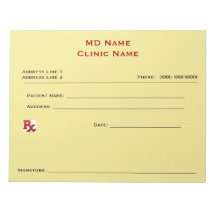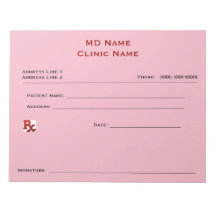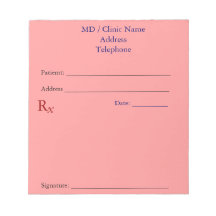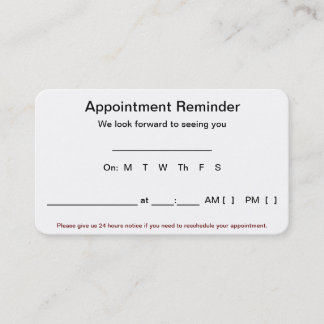But clinical trials are necessary for medical progress and participants are necessary for trials.
Primary care physicians (PCPs) are a critical source of referrals and support for trials. Even if the clinicians do not participate directly in the trial, their involvement can mean the difference between success and failure.
Here are the ways PCPs can help clinical trials succeed.
Primary care physicians (PCPs) are a critical source of referrals and support for trials. Even if the clinicians do not participate directly in the trial, their involvement can mean the difference between success and failure.
Here are the ways PCPs can help clinical trials succeed.
Participant recruitment
PCPs are often the first and, sometimes, the only point of contact for patients in the healthcare system. As such, they are crucial to identifying suitable candidates who meet study eligibility criteria and informing them of the opportunity. They possess an in-depth understanding of their patients’ health histories, lifestyles, and predispositions.
The 2023 Perceptions & Insights Study from the Center for Information and Study on Clinical Research Participation found that doctors were one of the primary means by which patients learn of clinical research opportunities. In a separate study in Applied Clinical Trials, safety concerns and institutional support were cited as the top two motivators for participation. Of those motivated by institutional support, 50% of respondents ranked their doctor’s support for participation as important, second only to having someone to answer study-related questions. Through a personalized approach, discussing the risks and benefits, PCPs help patients make informed decisions on engaging in clinical research.
PCPs with a diverse base of patients can help address the lack of demographic diversity in clinical trials by encouraging minority patients to participate. Despite an emphasis on making trials more representative of the general population, many groups are still underrepresented, which can affect outcomes and skew findings.
Participant retention and support
Non-adherence compromises a trial’s validity and has the potential to yield inconclusive or misleading results. This “Leaky Pipe” Analysis illustrates the dropout that typically occurs over the course of clinical trials. For every 100 patients identified as potentially eligible per the study protocol, only nine will randomize, and seven will actually complete the trial.
Some reasons for dropout are unavoidable and completely understandable, such as adverse side effects and worsening medical conditions. However, for participants who are considering leaving a trial, strong measures of support, appreciation, and recognition of their contribution from their healthcare providers can go a long way toward encouraging them to stay in.
In addition, PCPs’ familiarity and continuous communication with their patients provide opportunities to check in on progress, address any study-related questions or concerns, and provide overall support and motivation. In fact, a 2020 study posted in The Journal of the American Board of Family Medicine found that the strongest positive predictor in patient post-trial follow-up was having a PCP. By reinforcing the value of their contribution and providing care throughout the duration of the trial, PCPs can help ensure patient retention and minimize dropout rates.
Providing comprehensive care
PCPs offer a continuum of care beyond the scope of clinical trials, providing a holistic approach to trial participation. In some cases, before their patient begins study activities, clinicians will perform a baseline health evaluation to assess the impact of the trial on overall health down the line.
Participants almost always continue to have health needs that require treatment and management unrelated to the clinical trial. PCPs manage these needs as they arise, ensuring overall health remains a priority with as little interference with the study protocol as possible. Should any adverse reactions occur as a result of the investigational product, they are also there to monitor symptoms and treat medical conditions as necessary.
The success of clinical trials hinges on the collaboration between researchers and the broader health community. The involvement of PCPs is rooted in the trust and established care they provide to patients, which can directly influence their decision to enroll and remain in a clinical trial.
Beyond distinguishing suitable candidates for clinical research, the data and feedback they hear from their participating patients allow for the integration of new knowledge into everyday practice and can be crucial to the success of clinical trials in all settings.
PCPs can further the cause of medical research and benefit their patients by encouraging them to participate in clinical trials.
15% Off Medical Practice Supplies
VIEW ALL
 Manual Prescription Pad (Large - Yellow)
Manual Prescription Pad (Large - Yellow) Manual Prescription Pad (Large - Pink)
Manual Prescription Pad (Large - Pink) Manual Prescription Pads (Bright Orange)
Manual Prescription Pads (Bright Orange) Manual Prescription Pads (Light Pink)
Manual Prescription Pads (Light Pink) Manual Prescription Pads (Light Yellow)
Manual Prescription Pads (Light Yellow) Manual Prescription Pad (Large - Blue)
Manual Prescription Pad (Large - Blue)__________________________________________________
Appointment Reminder Cards
$44.05
15% Off
$56.30
15% Off
$44.05
15% Off
$44.05
15% Off
$56.30
15% Off













No comments:
Post a Comment